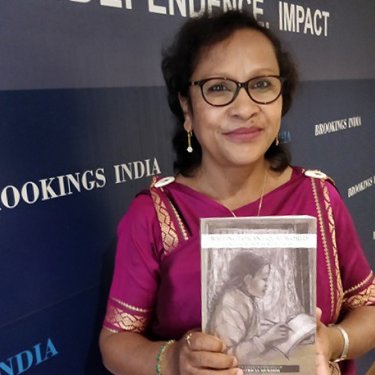Indian journalist charged over Facebook post urging respect for the rule of law

Reporters Without Borders (RSF) calls on the Indian judicial system to dismiss criminal charges against a newspaper editor in Shillong, the capital of the northeastern state of Meghalaya, over a Facebook comment saying those responsible for a case of communal violence should be prosecuted.
----------------------------------------------------------------------------
Update, 25 March 2021
In response to an appeal by Shillong Times editor Patricia Mukhim, India’s supreme court today quashed criminal charges brought against her last year in the northeastern state of Meghalaya over a Facebook post about the state’s systematic failure to punish ethnic violence. RSF hails this decision and hopes it will set a legal precedent that protects free speech and the right to investigate and question the actions of politicians.
-----------------------------------------------------------------------------
Shillong Times editor Patricia Mukhim is facing a possible combined sentence of ten years in prison as a result of her Facebook post on 4 July about a violent attack on five teenage members of Meghalaya’s “non-tribal” minority by suspected members of those officially known in India as “Scheduled Tribes,” who form the majority in Meghalaya.
Urging Meghalaya’s chief minister to ensure that the assailants were prosecuted, Mukhim’s post argued that Meghalaya’s systematic failure to punish ethnic violence against its non-tribal minority put it in the category of a “failed state.” And she concluded by asking: “Should our non-tribal brethren continue to live in perpetual fear in their own state?”
“Justice for all”
In response to a complaint about the post, the police brought three criminal charges against Mukhim – promoting enmity between different groups, statements conducive to public mischief, and defamation – which together carry a maximum sentence of ten years in prison.
“I put up the post as someone who believes in human rights and justice for all,” Mukhim told RSF. Her lawyer asked Meghalaya’s high court to dismiss the case on the grounds that a Facebook post calling for application of the rule of law couldn’t be regarded as promoting discord. But against all logic, the high court’s judges recently upheld the complaint’s validity. “I have no alternative but to approach the Supreme Court with the hope of getting justice there,” Mukhim said.
“We call on the members of India’s supreme court to restore the rule of law by invalidating the Kafkaesque charges against Patricia Mukhim,” said Daniel Bastard, the head of RSF’s Asia-Pacific desk. “This journalist is clearly the victim of a misuse of the justice system and is being punished for using her freedom of speech. The court must end this farce, which borders on judicial harassment.”
Hostile decisions
This is not the first time that the Meghalaya high court’s judges have issued a decision hostile to Mukhim. As RSF reported at the time, she and her newspaper’s publisher, Shobha Chaudhuri, were each condemned to pay 200,000 rupees (2,600 euros) in March 2019 for contempt of court because of an article drawing attention to a court directive on benefits for retired judges. The pair approached the Supreme Court and the decision was eventually stayed.
And in April 2018, RSF called for a thorough investigation into a kerosene bomb attack on Mukhim’s home that was probably a reprisal for her investigative reporting on illegal mining in which Meghalaya state officials were allegedly involved.
India is ranked 142nd out of 180 countries in RSF's 2020 World Press Freedom Index.



